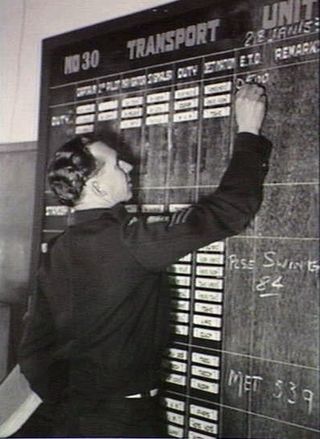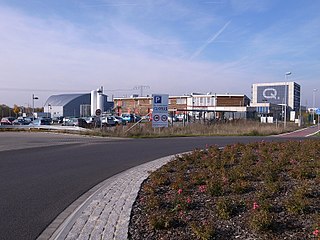Related Research Articles

The Korean People's Army is the military force of North Korea and the armed wing of the Workers' Party of Korea (WPK). The KPA consists of five branches: the Ground Force, the Naval Force, the Air and Anti-Air Force, Strategic Force, and the Special Operation Force. It is commanded by the WPK Central Military Commission, which is chaired by the WPK general secretary, and the president of the State Affairs; both posts are currently headed by Kim Jong Un.


Tom Clancy's Splinter Cell: Chaos Theory is a stealth game developed by Ubisoft Montreal and Ubisoft Milan and released in March 2005 for the Xbox, PlayStation 2 (PS2), GameCube and Microsoft Windows. Handheld versions for the Nintendo DS, mobile, and N-Gage were also released. A Game Boy Advance port was planned but later cancelled.
The ge is a traditional Chinese unit of volume equal to 1/10 sheng. Its Korean equivalent is the hob or hop and its Japanese equivalent is the gō.

The Korean DMZ Conflict, also referred to as the Second Korean War by some, was a series of low-level armed clashes between North Korean forces and the forces of South Korea and the United States, largely occurring between 1966 and 1969 at the Korean DMZ.

The Republic of Korea Air Force, also known as the ROK Air Force or South Korean Air Force, is the aerial warfare service branch of South Korea, operating under the Ministry of National Defense of the Republic of Korea.

The 180th Airlift Squadron is a unit of the Missouri Air National Guard 139th Airlift Wing located at Rosecrans Air National Guard Base, St. Joseph, Missouri. The 180th is equipped with the C-130H2 Hercules.
North Korea ranks among some of the most extreme censorship in the world, with the government able to take strict control over communications. North Korea sits at the bottom of Reporters Without Borders' 2022 Press Freedom Index, ranking 180 out of the 180 countries investigated.
The 180th Division was created in February 1949 under the Regulation of the Redesignations of All Organizations and Units of the Army, issued by Central Military Commission on November 1, 1948, basing on the 24th Brigade, 8th Column of Huabei Military Region. Its history could be traced to 24th Brigade, 8th Column of Jinjiluyu Field Army formed in July 1947.

The GT26CW-2 is the Dash-2 variant of the GT26CW diesel-electric locomotive series created by the Electro-Motive Division (EMD) of General Motors for export to Iran, Israel, Morocco, Pakistan, Peru, South Korea, Turkey and Yugoslavia. Various licensees have also constructed or refurbished this model. It is similar to the highly successful SD40-2 North American locomotive.

The Blue House raid, also known in South Korea as the January 21 Incident, was a raid launched by North Korean commandos in an attempt to assassinate President of South Korea Park Chung Hee in his residence at the Blue House in Seoul, on January 21, 1968. A 31-man team of the Korean People's Army (KPA) infiltrated the DMZ but was intercepted by police near the residence. In the ensuing pursuit, all but two commandos were killed; one was captured, and one fled back to North Korea. South Korean casualties totaled 26 killed and 66 wounded, including about 24 civilians; four Americans also were killed. President Park was unharmed.

No. 30 Transport Unit was a Royal Australian Air Force (RAAF) unit that operated during the Korean War. It was formed in November 1950 as No. 30 Communications Unit and based at Iwakuni, Japan, as part of No. 91 (Composite) Wing. The unit was initially equipped with four Douglas C–47 Dakotas and two Austers, one of the Dakotas being the personal transport of Lieutenant General Sir Horace Robertson, commander of the British Commonwealth Occupation Force (BCOF). Another four Dakotas were sent to Japan due to operational demands. The unit's role in Korea was to support No. 77 (Fighter) Squadron by transporting supplies and equipment. It also delivered materials and stores to Australian and Commonwealth ground forces, and transported VIPs of the United Nations Command. Return journeys to Japan were often used to evacuate wounded personnel from the theatre. No. 30 Communications Unit was redesignated No. 30 Transport Unit in November 1951, and re-formed as No. 36 (Transport) Squadron in March 1953. The squadron remained in Korea following the armistice, and returned to Australia in June 1955.

The Battle of Taejon was an early battle of the Korean War, between U.S. and North Korean forces. Forces of the United States Army attempted to defend the headquarters of the 24th Infantry Division. The 24th Infantry Division was overwhelmed by numerically superior forces of the Korean People's Army (KPA) at the major city and transportation hub of Taejon. The 24th Infantry Division's regiments were already exhausted from the previous two weeks of delaying actions to stem the advance of the KPA.
The Battle of the Notch was an engagement between United States and North Korean forces early in the Korean War on August 2, 1950 in southern South Korea. The fight ended in a victory for the United States after North Korean forces attempting to assault the US position were blocked and repelled repeatedly, suffering heavy casualties.

India–North Korea relations, also called Indian-North Korean relations or Indo-North Korean relations, are the bilateral relations between India and North Korea. Both countries have growing trade and diplomatic relations. India maintains an embassy in Pyongyang, and North Korea has an embassy in New Delhi.

Corruption in North Korea is a widespread and growing problem in North Korean society.

The General Service Medal 1947 is a military service medal of India, established by the President of India on 5 June 1950. It was awarded for service in Jammu and Kashmir during the Indo-Pakistani War of 1947, up through service in the Mizo Hills. Eligible operations are denoted by a clasp for each operation.
Bureau 121 is a North Korean cyberwarfare agency, and the main unit of the Reconnaissance General Bureau of North Korea's military. It conducts offensive cyber operations, including espionage and cyber-enabled finance crime. According to American authorities, the RGB manages clandestine operations and has six bureaus.

Hanwha Qcells is a major manufacturer of photovoltaic cells. The company is headquartered in Seoul, South Korea, after being founded in 1999 in Bitterfeld-Wolfen, Germany, where the company still has its engineering offices. Qcells was purchased out of bankruptcy in August 2012 by the Hanwha Group, a South Korean business conglomerate. Qcells now operates as a subsidiary of Hanwha Solutions, the group's energy and petrochemical company.

The geology of North Korea has been studied by the Central Geological Survey of Mineral Resources, rare international research and by inference from South Korea's geology.
References
- 1 2 Park, Ju-min; Pearson, James. Gopalakrishnan, Raju (ed.). "Exclusive: North Korea's Unit 180, the cyber warfare cell that worries the West". Reuters. Archived from the original on May 21, 2017.